
It's not the Venice Commission that's scary, it's the unprofessionalism of the authorities
The Venice Commission recommends revising the law on Language. Why this is unacceptable and what the Ukrainian authorities should do
Ukraine's MP and chairman of the subcommittee on cultural policy Mykola Kniazhytskyi has analyzed and commented on this decision for Espreso
The adoption of the law on National Minorities (Communities) by Verkhovna Rada on December 13, 2022, was the implementation of the seventh of the European Commission's criteria for granting Ukraine the EU candidate status. The EC recommended "finalizing the reform of the legal framework on national minorities, which is currently being prepared, in line with the recommendations of the Venice Commission, and adopting immediate and effective implementation mechanisms."
A month after the law was adopted, the chairman of the Monitoring Committee of the Parliamentary Assembly of the Council of Europe requested the opinion of the Venice Commission, which adopted it at a meeting on June 8-10 this year. The EC will probably take this document into account when writing an assessment of Ukraine's fulfillment of the seven criteria as a prerequisite for the start of the process of our country's full membership in the EU.
However, the fact is that our state cannot implement the lion's share of the Venice Commission's recommendations because they contradict the Constitution of Ukraine, decisions of the Constitutional Court, domestic legislation, as well as international law and the case law of the European Court of Human Rights. In addition, the Venice Commission based its conclusions on an erroneous reading of Ukrainian laws, in particular the law on the Legal Regime of martial law. That is why it decided that national minorities are discriminated against in Ukraine.
This is not true. Even during the large-scale war in Ukraine, the rights of national minorities have not been violated. The real state of affairs is different: it was Russia that started the war to destroy our state and commit genocide against the Ukrainian people - "citizens of Ukraine of all nationalities," as the Constitution states.
The Hungarian minority has become a hostage of Budapest
Many parliamentarians, experts, and journalists were surprised, outraged, and even shocked by the Venice Commission's recommendations. In Ukraine, the Venice Commission is trusted as a professional community of international lawyers. Therefore, we did not expect such an unprofessional and sometimes biased document against Ukraine.
Various proposals are being made, ranging from the adoption of a resolution by the Verkhovna Rada condemning the Venice Commission to angry calls to ignore its Opinion. And when the EU tries to apply it and obliges Ukraine to fully implement it, then radical voices suggest saying "goodbye to the EU." In short, "let's freeze up our ears to spite our mother".
Emotions should be put aside. Instead, our executive branch should first analyze the document. After all, the Venice Commission highlighted the good cooperation with Ukrainian official bodies. It was noted that officials from the State Service for Ethnic Policy and Freedom of Conscience answered the commission's questions in writing. The commission also heard from the Head of the State Service of Ukraine for Ethnic Policy and Freedom of Conscience, Viktor Yelenskyi.
We are aware of neither these written responses nor the government's reaction to the Venice recommendations. We also do not understand what Kyiv's strategy was in its dialogue with Brussels to fulfill the seventh criterion. The authorities reassure us that the Europeans "will not insist" on this topic until the war is over, because they understand its sensitivity and lower priority compared to the counteroffensive and the fulfillment of other EU criteria.
Well, maybe Europeans will turn a blind eye, but it may also happen that they will not do that. US President Joe Biden's statement that there are no conditions for a simplified procedure for Ukraine's accession to NATO because of corruption should serve as a warning against lenient approaches. And probably not only in the defense sector.
Hungary, our "sworn friend", who does not miss any opportunity to harm us, insisted on including the law on National Minorities in the list of criteria for obtaining EU candidate status. Official Budapest has long blocked meetings of the NATO-Ukraine Commission because of the alleged "harassment" of national minorities. It announced its categorical demands to change the laws on Education and on Ensuring the Functioning of the Ukrainian Language as the State Language."
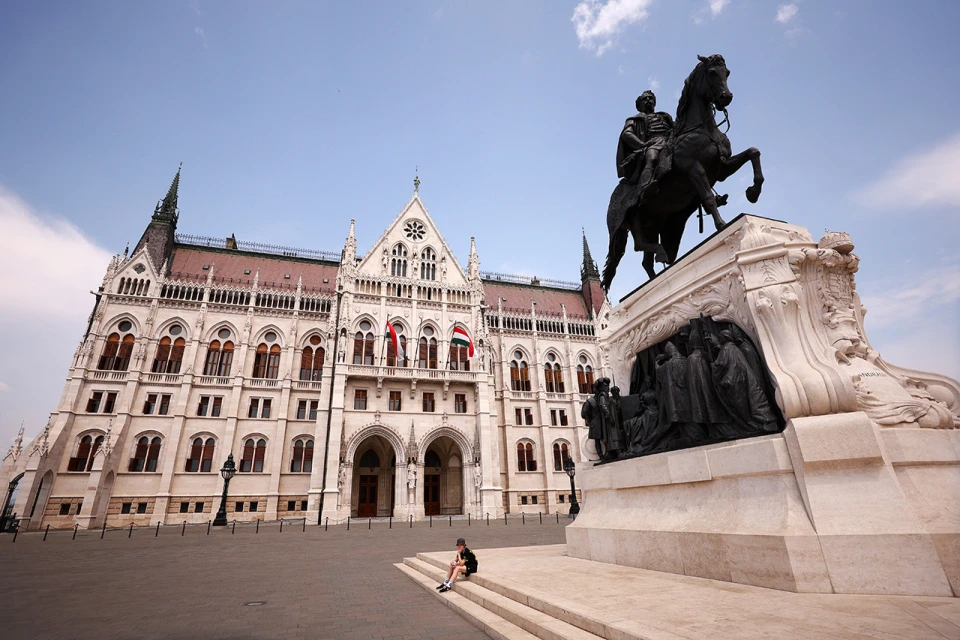
The Parliament of Hungary. Photo: Gettyimages
For more than two weeks now, Hungary has been conducting unacceptable maneuvers around 11 captured Ukrainian soldiers. The Minister of Foreign Affairs, Mr. Szijjarto, was outraged that members of the Hungarian minority in Ukraine are also being mobilized and "many are dying in the war." He believes that he has the right to speak at international forums "on behalf of a nation whose representatives are dying in this war." That is why Hungary wants to achieve peace through negotiations as soon as possible.
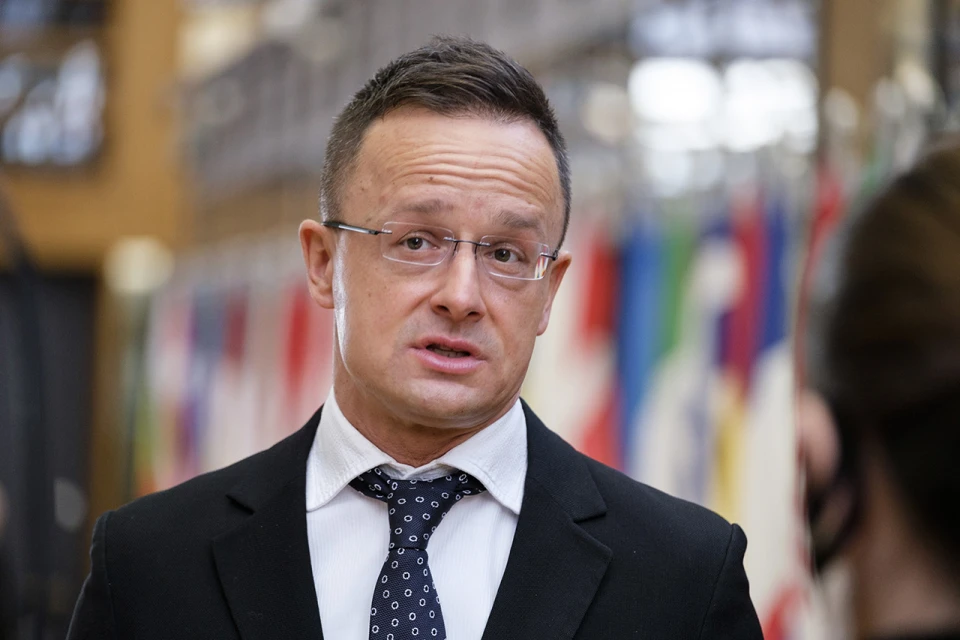
Photo: Gettyimages
In this way, Ukrainian citizens of Hungarian descent have become hostages to the policies of a neighboring state that is unfriendly to us, which is a blatant violation of international law and policy of good neighborliness. For Budapest, the Opinion is a real gift and a tool for implementing this course, a means of blocking our integration into the EU and NATO. No doubt, Viktor Orban's government will take full advantage of this gift.
The "key" and "other" recommendations
The Venice Commission divided its recommendations into "key" and "other". There are 8 key ones, 5 of which relate to the law on National Minorities itself, and 3 to other laws, including the law on Education and the law on Ukrainian as the State Language. The Commission upheld its previous recommendations to these laws from 2017 and 2020, so there are more than two dozen proposals in these areas. Thus, the Venice Commission's conclusion mainly concerns the legal mechanisms for using Ukrainian as the state language, as well as the scope of Ukrainian language instruction in public and private general secondary education.
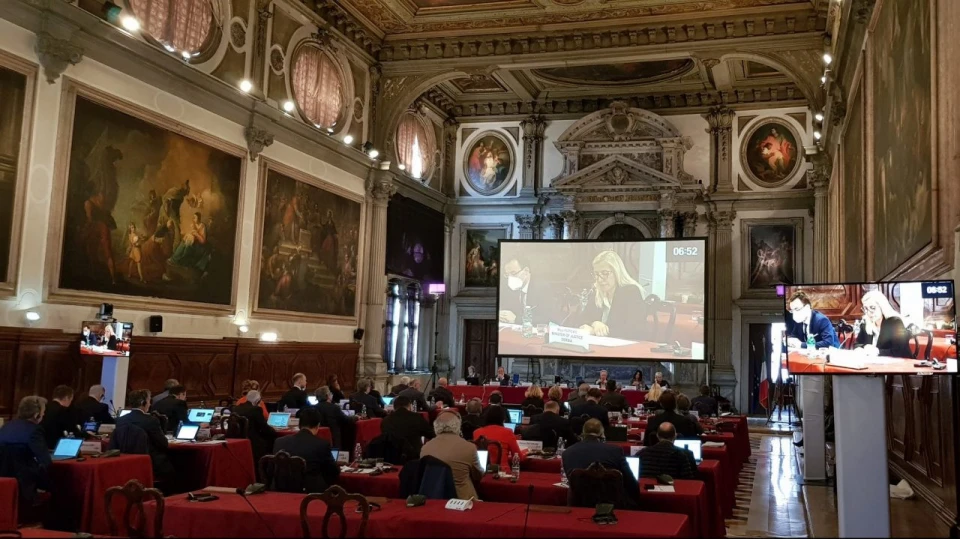
Photo: Serbian Ministry of Justice
Venice made the following main recommendations to the law on National Minorities: 1) to extend the right to organize events in minority languages to all persons; 2) to review the obligation to provide translation into Ukrainian of information about public events upon request of visitors; 3) to review the obligations related to book publishing and bookstores in the light of the principle of proportionality; 4) to provide greater legal certainty regarding the possibility of translating official inscriptions and information in general into minority languages; 5) to review the criteria for adopting a methodology for ensuring the use of languages while contacting with the authorities.
"Other" recommendations: 1) to revise the provisions of the law on Education and the law on the Ukrainian Language "containing restrictions on the freedom of use of minority languages and differential treatment of minority languages" in line with the 2017 and 2020 Opinion; 2) to abolish mandatory quotas for the use of the Ukrainian language as provided for in the laws on State language and on Media; 3) to postpone "the gradual transformation of the school system with instruction in minority languages and review it in the light of the 2017 Opinion of the Venice Commission".
Each of these recommendations requires a detailed analysis, which, however, is not the subject of this article. I would just like to note that the second of the "key" recommendations was the result of an inattentive reading of the law on National Minorities (Article 10, parts 2, 3), as it refers to the translation into Ukrainian of only the accompaniment of the event, provided that visitors submit a request at least 48 hours before the event. Other elements of the event are conducted in the language of national minorities.
Similar comments can be made about other detailed recommendations. Thus, it is easy to resolve these misunderstandings in the course of discussions with the European Commission. Some of the Venice Commission's proposals should be adopted, taking into account the same proportionality criterion. After all, the Commission has not been stingy with compliments on many provisions of the law, and so the room for constructive dialogue is quite wide.
The stunning Ukrainian reality
However, the essence of the problem is not in the details, but in the methodological approaches, general conclusions and suitability of the Opinion for strengthening democracy in our country. The Venice Commission declared that it did not consider "either the general legal framework in force in Ukraine in the field of minority protection or the general situation of national minorities in the country." Its Opinion is ostensibly limited to the provisions of the law on National Minorities and the harmonization of its provisions with the 2017 and 2020 recommendations.
"The Venice Commission warned that it did not assess the compliance of the listed laws with the Constitution of Ukraine. It also indicated that it had analyzed the law on National Minorities only for its compliance with "applicable international instruments and standards." Thus, the documents of the European Council: The Framework Convention for the Protection of National Minorities, the European Charter for Regional or Minority Languages, as well as Article 14 of the European Convention for Human Rights, Protocol No. 12 and Articles 26 and 27 of the International Covenant for Civil and Political Rights.
I will not quote and analyze each of these documents, because this article will grow to the size of a scientific research. I will limit myself to a few fundamental remarks.
Contrary to its declaration, the Venice Commission does take into account Ukrainian realities, not just the provisions of Ukrainian legislation and international law. In its recommendations for the 2020 law on the Ukrainian Language (upheld in 2023), the Commission noted that "language policy is an extremely complex and sensitive issue in Ukraine, which has been a source of tension in the past and may become a source of tension in the future with the related states of Ukraine's national minorities. It is also a highly politicized issue, especially in connection with recent events and the conflict with Russia."
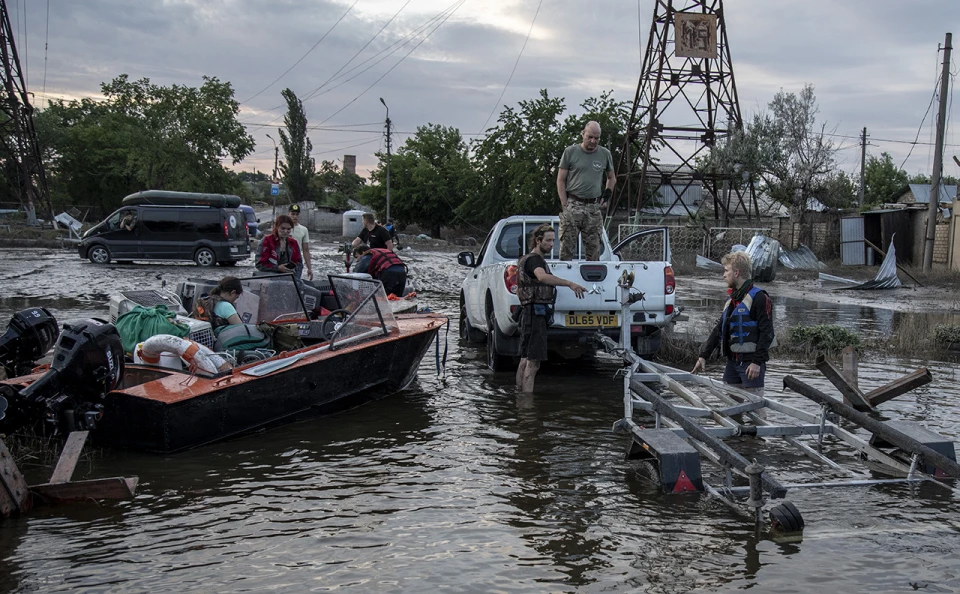
Photo:Gettyimages
Thus, the Venice Commission itself admitted that it took into account not only the law itself but also politics when writing its recommendations. Moreover, political expediency was a determining factor for it. However, let us ask why attention is paid to Ukraine's relations with other states, while no analysis of Ukraine's domestic policy, i.e. the actual situation of national minorities and our society as a whole, has been conducted?
The Commission uses the terms "complex, sensitive and politicized issue", "recent events", "conflict with Russia", although this is just all about journalism and lyrics, and not a description of reality or the language of legal terms, with a bias towards Russia and other neighboring states that use the national issue against our country.
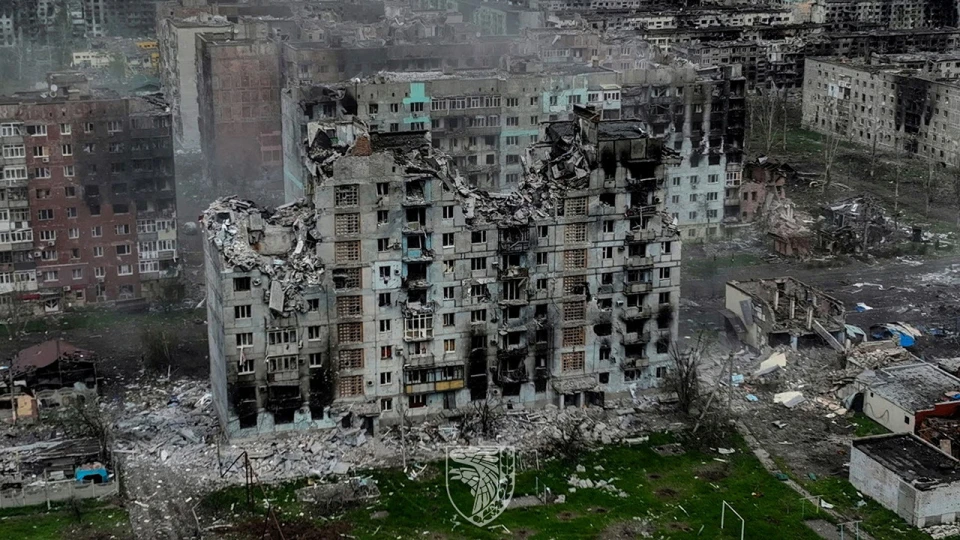
Photo: Reuters
The Ukrainian reality is staggering. After the Russian aggression in 2014, 1.5 million Ukrainians became internally displaced, including a significant number of indigenous peoples and national minorities from Crimea and the occupied East. After Russia's large-scale invasion on February 24, 2022, 13-14 million Ukrainians became IDPs and refugees. More than 700,000 Ukrainian children are studying abroad, with most of them studying online in Ukraine, in schools where they studied before the war. In such a way, Ukraine keeps its young citizens connected to their own country, preparing them to return home.
In addition, the demographic situation in the country as a whole and in some of its regions has substantially changed. In particular, in communities and districts with a significant percentage of national minorities (East and South, Bukovyna, Zakarpattia, Halychyna). Many minority communities, such as the Greek community in Mariupol, have been destroyed.
Venetians ignored their Сharter
For Ukraine, one of the main challenges posed by the war is to maintain the consolidation of society and its mobilization to confront Russia, the enemy of freedom, democracy, human and civil rights. Everything that contributes to this preservation should be encouraged and supported, while everything that hinders it must be named, firmly rejected and, if necessary, condemned.
Recognizing what helps and what hinders is a direct responsibility of Venice. On March 2, 2022, the UN General Assembly "condemned in the strongest terms the Russian Federation's aggression against Ukraine in violation of the UN Charter." The organization adopted a number of other resolutions calling for punishment of Russia, support for Ukraine, and the establishment of a just peace. The Council of Europe, OSCE, the EU, NATO, the African Union, the Economic Community of West African States, the Organization of American States, the Pacific Islands Forum, the Caribbean Community, and the Nordic Council also condemned Russia's aggression.
In January this year, the European Parliament adopted a resolution on the establishment of a tribunal for the crime of aggression against Ukraine. It states that "since February 2014, Russia has been waging an illegal, unprovoked and unjustified war of aggression against Ukraine, which it resumed on February 24, 2022, with a massive invasion of Ukraine." The International Criminal Court recognized the deportation of Ukrainian children by Russia as a crime of genocide. The European Parliament emphasized that Russian Federation is committing war crimes, crimes against humanity and the crime of genocide in Ukraine.
Therefore, our - Ukraine’s conclusion should be firm: the absence of a mention of these facts and documents of international law condemning the actions of the Russian Federation in the recommendation document of the European Council is tantamount to denying these facts and documents, and is an action directly violating the Venice Commission’s Statute. After all, this document addresses the national question, the use of the state language and the education system, which are basic issues for the existence and resistance of the state and the entire society.

President of the Venice Commission Gianni Buquicchio Photo: Getty Images
Let's move on. The official name of the Venice Commission is the European Commission for Democracy through law. The website of the Ministry of Foreign Affairs of Ukraine (I quote as an official statement, because Ukraine is a member of the Council of Europe) states that the main areas of activity of the Commission are: constitutional law; elections, referendums, political parties; cooperation with constitutional courts and ombudsmen; international or comparative studies. The Commission's competence includes: consideration of the constitutional situation in individual states; consideration of general constitutional law issues using a comparative approach; creation of centers for documentation of constitutional law.
Ignoring the provisions of its charter allowed Venice to do three stunning things: not to analyze the Constitution of Ukraine (although this is not true, as I will write about later); not to take into account the decision of the Constitutional Court of July as of 14, 2021, No. 1-r/2021 on the law on the Ukrainian language; not to cooperate with the CCU and the Ukrainian Ombudsman.
Thus, the Commission used the "test tube method": to take a single law, purify it from the influence of the external environment (i.e., realities) and propose to change it (just like other laws) according to its own method of distillation. Such a method may be acceptable for classes at university law faculties, but not in the field of international law and international relations.
Ukrainian language as the basis for constitutional order
The CCU's decision is of fundamental importance for the rule of law in Ukraine as part of its legal framework. It is binding on all institutions of the Ukrainian state. Therefore, the parliament cannot change the main provisions of these laws, in particular, given the indisputable fact that the CCU decision indirectly responded to the Venice recommendations to the laws on the Ukrainian language and education. It confirmed the status of the Ukrainian language as the only state language; the admissibility of distinguishing between indigenous peoples; the establishment of language quotas on radio and television; the obligation to teach in the state language as a prerequisite for non-discrimination against students of national minorities, etc.
The reasons for this decision are particularly important.
"Without the full functioning of the Ukrainian language in all areas of public life throughout Ukraine, the Ukrainian nation faces the loss of its status and role as the titular and state-forming nation, which is tantamount to the threat of the Ukrainian state's disappearance from the political map of the world. The Ukrainian language is the ultimate condition (conditio sine qua non) of Ukraine's statehood and its unity," the Constitutional Court confirmed.
The CCU stated, "Proficiency in the state language by persons belonging to indigenous peoples and national minorities of Ukraine also protects the rights of persons belonging to the state-forming nation to freely use the state language in any area of public life throughout Ukraine. The Ukrainian language in Ukraine is the language of full democratic participation of all citizens in the public life of society, the basis of its cohesion and unity. It plays a crucial role in the formation, development and strengthening of a united Ukrainian political (civil) nation."
And it emphasized, "Proper command of the state language at the appropriate level allows a person to fully participate in public life and democratic processes. Members of society who understand and respect the values on which the Constitution of Ukraine is based are a prerequisite for Ukraine's existence as a truly democratic state based on the rule of law. Ukraine, like every other state, has the right to choose its own language model of education that best ensures mastery of the state language as a symbolic and instrumental mechanism of social unity."
Another conclusion of the CCU is as follows - "'Russian-speaking citizens' of Ukraine do not constitute a single social unit - the one that, as a group of persons (circle of persons), is entitled to legal protection as an ethnic or linguistic unit (group), but is a political construct, not a legal category that can be subject to the legal protection regime guaranteed by the relevant provisions of the Constitution of Ukraine and international law."
The last part of the decision seems to be a response to the 44th Venice Recommendation of 2020: "Foreign policy considerations - be it Ukraine's pro-European policy or the conflict with Russia over the annexation of Crimea - are not a valid argument in discussions about the languages that citizens, including members of national minorities, have the right to use. With regard to the historical oppression of the Ukrainian language, this may lead to positive measures aimed at promoting the Ukrainian language, but, in the opinion of the Venice Commission, this cannot justify depriving the Russian language and its speakers living in Ukraine of the protection granted to other languages and their speakers."
Venice Commission’s Checkmate
In the above-mentioned conclusion-recommendation, the Venice Commission has checkmated itself. In this year's document, it came up with a surprising construction (recommendation 41): "In its 2020 Opinion on the recent changes to Latvian legislation on education in national minority languages, the Venice Commission agreed with the differential treatment of EU and non-EU languages. This was justified by two main differences with Ukraine: unlike Ukraine, Latvia is a member of the EU, and unlike the Constitution of Ukraine, which makes a clear reference to the "free development, use and protection of the Russian language (Article 10), the constitutional order of Latvia does not specifically recognize any minority language.
Moreover, the privileged status of EU languages classifies them as foreign languages, not minority languages. Even though Ukraine has since been granted EU candidate status, these arguments remain relevant. However, due to the brutal aggression of the Russian Federation against Ukraine, it would be justified to provide for a transitional period during martial law when this privileged status was not granted to the Russian language."
I have three comments
First. The Commission is an advisory body of the Council of Europe, not of the European Union, and therefore should evaluate and make recommendations to all members of the European Council, regardless of their affiliation with the EU. The differentiation of responsibilities of individual members or groups of the European Council is a violation of the UN founding documents and the European Council’s documents based on them, as well as of the institution itself.
Surely this is what the highly respected members of the Venice Commission had in mind?
Second. In its Opinion, the Commission assured that it had not examined the compliance of the law on National Minorities with the Constitution of Ukraine. And immediately violated this assurance. After all, having mentioned the admissibility of suspending the norms of the Constitution for the time of brutal aggression, it is necessary to finish the whole idea". That is, to read the decision of the CCU, to meet with its judges to get clarifications on the constitutional order in our country in light of decision No. 1-r/2021.
But the Venice Commission did not do this because then it would have had to revise its conclusions from 2017 and 2020 and admit its mistakes. And no one likes to do that.
Third. "The illegal, unprovoked and unjustified aggressive war against Ukraine" has been going on since 2014, which is now in its tenth year. The "privileged" status of the Russian language, enshrined in the 1996 Constitution of Ukraine (sic!), has not become an instrument of internal consolidation of Ukraine, protection of its independence and territorial integrity. Instead, it served to justify the genocidal ideology of the "Russian peace" and the war against our country.
And this fact must be taken into account by all those who analyze, advise, and evaluate the Ukrainian constitutional order and legislation in the field of national relations, language, and education. To return to such a privilege of the Russian language after the end of martial law would be to cause irreparable damage to the future, even to the very existence of the Ukrainian nation.
States have a wide range of assessment
The problems analyzed above refer us to Article 15 of the European Convention on Human Rights - the ECHR (analogous to Article 4 of the UN International Covenant on Civil and Political Rights): "In time of war or other public danger threatening the life of the nation, a High Contracting Party may take measures derogating from its obligations under the present Convention only to the extent required by the exigencies of the situation and provided that such measures are not inconsistent with its other obligations under international law." The article specifies the rights that cannot be violated, as well as the procedure for notifying the UN and the European Council of derogations.
For Ukraine, the ECHR is of primary importance, as it is protected by the European Court of Human Rights, whose judgments are binding. The Court has already considered complaints based on Article 15, having developed recommendations based on its case law ("ECHR Guidelines on Article 15").
"The Court," as stated in the guidelines, "has noted that the limits of its power of review are 'particularly evident' in relation to Article 15 (Ireland v. the United Kingdom, § 207): "It is primarily the responsibility of each Contracting State to determine whether 'public danger' threatens the life of the nation and, in that case, how far it is necessary to go in an attempt to overcome the emergency, since it is responsible for 'the life of [its] nation'. Since national authorities are directly and continuously dealing with current urgent needs, they are generally better placed than an international judge to decide both the existence of such an emergency and the nature and extent of the derogations necessary to prevent it. In this respect, Article 15(1) (...) leaves a wide margin of appreciation to such authorities".
In its case law, the ECtHR has considered cases of derogation from ECHR obligations during an "emergency situation ("public danger") threatening the life of the nation (terrorist threat). It has not considered such cases in times of war, when the entire state and society must mobilize to repel the aggressor. In both cases, the responsibility for the defense and life of the nation lies solely with the state, which has broad powers to determine the scope of the measures taken.
The ECtHR has identified eleven criteria by which it will review cases under Article 15. In general, they relate to assessments of whether the circumstances justified the derogation, the proportionality of its application, the availability of judicial review of the derogation, the mechanism for reviewing the derogation process, and the inadmissibility of unjustified discrimination. It is easy to prove that Ukraine has fulfilled all these criteria.
The eleventh paragraph of the ECtHR guidelines states that in its judgments the Court will take into account "the views of any national courts which have examined the matter, if the highest national court of a Contracting State has concluded that the measures were not strictly necessary, the Court may justifiably reach the opposite conclusion only if it is satisfied that the national court has misinterpreted or misapplied Article 15 or the Court's case-law under that Article, or has reached a manifestly unreasonable conclusion".
In other words, the ECtHR respects the decisions of national courts, including the Supreme Court and the Constitutional Court, hence the strict wording regarding the conditions for reviewing their decisions. The ECtHR gives them a kind of presumption of competence, and potential review must be based on convincing evidence. In two significant cases: when national courts find the government's actions unjustified and when the courts find the government's actions justified. In the second case - and this is the situation with the CCU's 2021 decision on the language law - the ECtHR is determined to support the correct interpretation and application of Article 15 of the ECHR.
Thus, by not taking into account the CCU's decision of 2021 in the Opinion, the Venice Commission ignored not only the Ukrainian constitutional order but also the ECtHR case law on Article 15 of the ECHR. But this is not the most formal criticism that should be put to the Venice Commission’s Opinion.
Attacks on language make up a threat to national security
"The Venice Commission noted (recommendations 73-73, Opinion 2023) that since 2015, Ukraine has submitted several notifications of derogation from its obligations under Article 15 of the ECHR and Article 4 of the International Covenant on Civil and Political Rights regarding the right to freedom of assembly and freedom of association. It concluded, "Since the temporary restrictions apply only to persons belonging to national minorities, the Venice Commission supports the position of the UN High Commissioner for Human Rights that "the measures provided for in paragraph 3 of the transitional provisions (of the law on National Minorities - Ed.) appear to be discriminatory and therefore do not comply with Article 4 of the ICCPR.
There is no discrimination against minorities in Ukraine during martial law, as Article 6, Section 5 of the law on the Legal Regime of Martial Law states that "an exhaustive list of constitutional rights and freedoms of a person and citizen that are temporarily restricted in connection with the introduction of martial law, indicating the duration of these restrictions" is established by a decree of the President of Ukraine.
In the Decree of the President of Ukraine No. 64/2022 "On the Introduction of Martial Law," Article 3 states that "for the period of martial law, the constitutional rights and freedoms of a person and citizen provided for in Articles 30-34, 38, 39, 41-44, 53 of the Constitution of Ukraine may be restricted." The right to assembly is regulated by Article 39 of the Constitution. During martial law, it is restricted to all citizens, not just members of national minorities.
Neither the UN High Commissioner for Human Rights nor the Venice Commission have the right to make such mistakes even in peacetime. Making them during a genocidal war causes irreversible damage to Ukraine and all states and international organizations supporting us.
The preamble to the law on Ensuring the Functioning of the Ukrainian Language as the State Language states that its adoption, among other things, is aimed at "strengthening the state-building and consolidation functions of the Ukrainian language, increasing its role in ensuring the territorial integrity and national security of Ukraine." The preamble to the law on National Minorities (Communities) of Ukraine states that it is adopted to "consolidate Ukrainian society."
In its decision of 2021, the Constitutional Court noted, "Any encroachment on the legal status of the Ukrainian language as the state language on the territory of Ukraine is unacceptable, as it violates the constitutional order of the state, threatens national security and the very existence of Ukraine's statehood."
For almost a decade now, Ukraine as a state and the Ukrainian people - citizens of Ukraine of all nationalities - have been defending independence, freedom and democracy. Not only their own, but also that of the whole of Europe. Many aspects of our public life need to be criticized and corrected - this is a fact. But all those who undertake to evaluate us must demonstrate maximum professionalism, knowledge of the law and impartiality. Their recommendations should be perceived by the warring state and nation as assistance in solving problems, and not as part of them.
Action plan
It's time for conclusions and proposals.
The Venice Commission's recommendations were not out of the blue, as its previous proposals on the laws on Education and the Ukrainian Language showed the way it argued about national and language issues in Ukraine. We are also aware of the non-standard, to put it mildly, assessments of the UN High Commissioner for Human Rights.
Cooperation with them and arguing Ukraine's position requires professionalism, deep knowledge of international law and its use to protect national security. The State Service for Ethnic Affairs and Freedom of Conscience (DESS), which is responsible for communicating with the Venice Commission, is not capable of doing so. This was demonstrated, in particular, by its unjustified resistance to the use of the ECHR and the ECtHR case law to ban the activities of the Russian Orthodox Church in Ukraine.
That is why the Ministry of Foreign Affairs, the Office of the Deputy Prime Minister for European Integration, the National Security and Defense Council, and the Verkhovna Rada should be involved in the process. After all, according to the Constitution, all Ukrainian authorities - Verkhovna Rada, President and Government - are obliged to work in the interests of the European and Euro-Atlantic integration of our country.
The Venice Commission has said its piece and will not retract it. But these are recommendations, not a binding document. The European Union gave them political weight, so now all efforts should be focused on communicating with the European Commission, the European Parliament and other EU structures.
To this end, I propose a seven-point action plan.
1. Ukraine needs to work in accordance with international law, in particular the ECHR. This is the only way to resolve problematic issues in an impartial manner, i.e. through judicial proceedings before the ECtHR. All other ways are political, requiring other states to share our common values and understand the realities in which Ukraine is fighting. Hungary has demonstrated that it shares neither common values nor understanding of our situation. It is closer to the values and prices of the aggressor state.
2. Ukraine should use Article 15 of the ECHR and the ECtHR case law on its provisions, as they are a kind of legal instruction for the situation in which Ukraine has been living for almost a decade. This article of the ECHR should be considered in the light of Article 1 of the ICCPR, according to which "all peoples have the right to self-determination. By virtue of this right they freely determine their political status and freely pursue their economic, social and cultural development". And other states "shall, in accordance with the provisions of the UN Charter, promote the exercise of the right to self-determination and respect that right".
3. The Ministry of Foreign Affairs should prepare a thorough analysis of the Venice Commission’s proposals, using the CCU's decisions on the laws on the Ukrainian language and education, as well as other decisions on related issues. The analysis should be sent to the Venice Commission, and based on it, a letter should be prepared to the European Commission to conduct a substantive dialogue on the law on National Minorities.
4. MPs of Ukraine should turn to the CCU to clarify the constitutionality of the actions of the Ukrainian state (in the light of Article 15 of the ECHR) after the Russian aggression against our country in February 2014, in the context of the law on National Minorities and the Venice Commission’s Opinion.
5. If the European Commission supports the main recommendations of the Venice Commission and demands their implementation (regarding laws on National Minorities, the Ukrainian language and education), the MFA should appeal against this decision to the ECtHR.
6. The MFA should also prepare an appeal against the actions of Hungary or any other state if they try to block the process of starting negotiations with the EU on full membership in the organization using legislation on education, language and national minorities.
7. We must act decisively, based on the fact that the "illegal, unprovoked and unjustified aggressive war against Ukraine" has become a legal precedent not only for Ukraine, but also for the EU and the entire international community.
One of the main tasks of the community of democratic states and peoples is the need to develop new legal and methodological approaches in view of the crime of genocide against the Ukrainian people, which was justified by national issues: the ideology of the "Russian peace," "protection of the Russian-speaking population," "genocide of the people of Donbas and Crimea." And, most importantly, Russia's attempts to use the problems of national minorities other than Russian in Ukraine. In this matter, the voice of our state must be heard, and the actual legal practice must be analyzed and applied.
- News














































